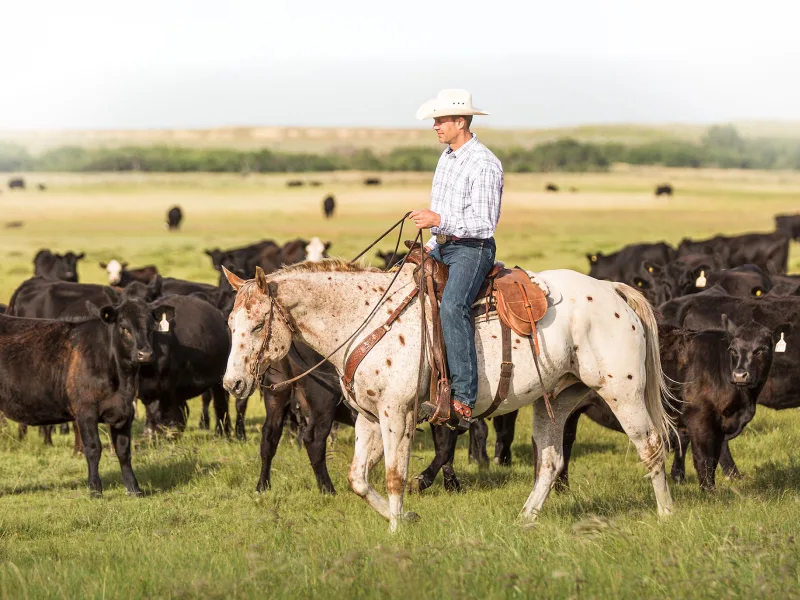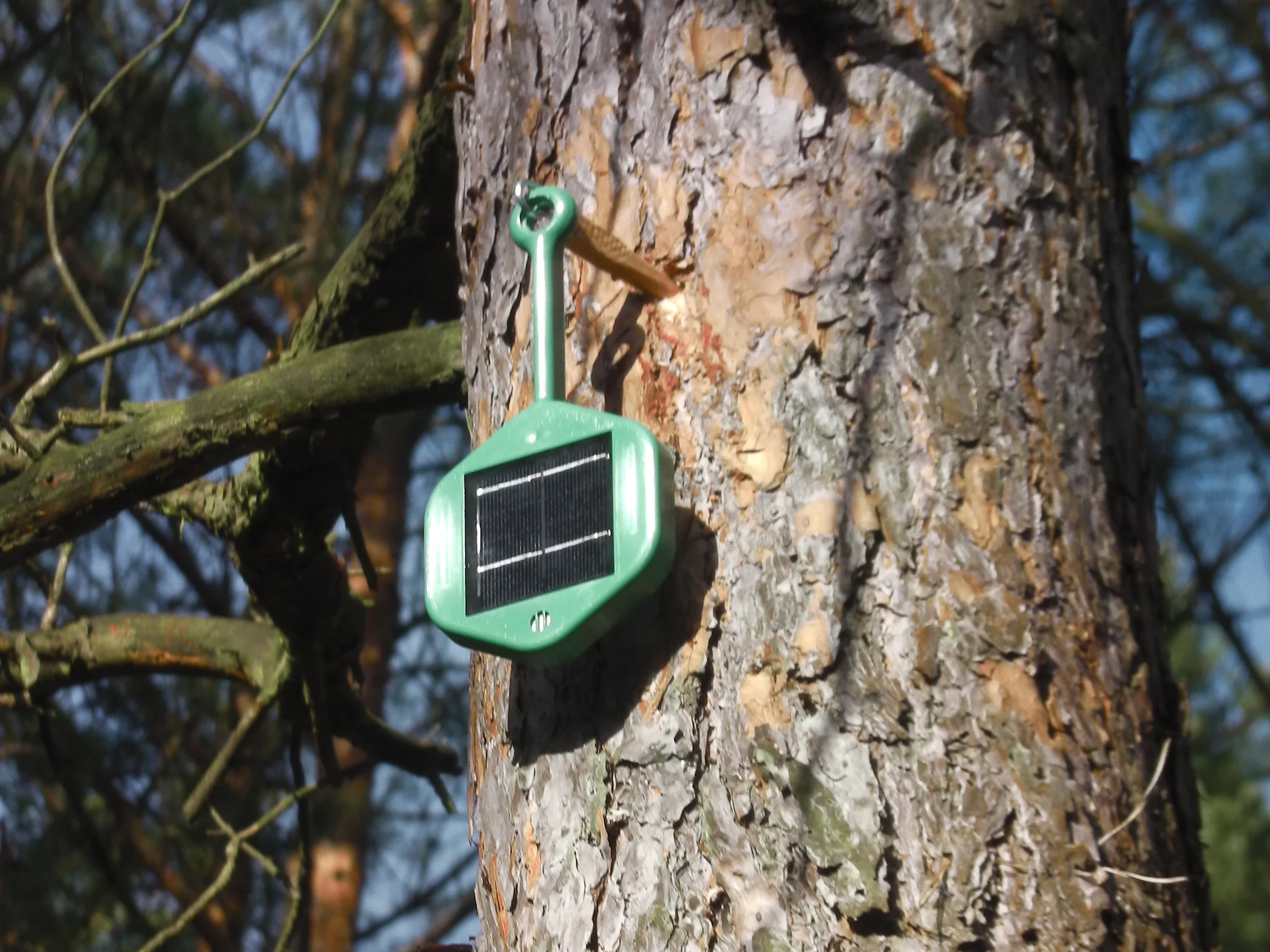
Tech innovation
Digital guardians help protect your farm’s greatest asset – you
Mar 15, 2023
TELUS Connected Worker makes you visible to help keep you safe wherever you are on the farm
Like anyone else, farmers go to work each day expecting to come home safely to their families. But meeting this expectation takes special care in the fourth-most hazardous industry in Canada when it comes to the potential for fatal injury.
Like anyone else, farmers go to work each day expecting to come home safely to their families. But meeting this expectation takes special care in the fourth-most hazardous industry in Canada when it comes to the potential for fatal injury.
To help, Decisive Farming by TELUS Agriculture has introduced the TELUS Connected Worker suite of products for all farm workers.

Susan Cooley-Pottier, Sr. Product Manager at TELUS Business Solutions
“A lot of farmers and their employees spend time on their own. They tend to run lean operations even under tough conditions,” says Susan Cooley-Pottier, Senior Product Manager with TELUS. “Decisive Farming has introduced this proven technology to farmers to bring an added layer of safety and make a difference in their day-to-day lives.”
Connected Worker is a suite of monitoring solutions for a producer, their employees and their family. Whether working alone in the field, checking on livestock, reporting on bins or handling potentially dangerous materials, these tools offer the peace of mind that help will be on the way if something goes wrong.

The TELUS Connected Worker Safety Aware platform is accessible through both desktop and mobile app.
The farm version of Connected Worker comes in three parts. The first is a safety awareness device such as a cellphone with the app, or a small wearable device equipped with two-way communication. The second is monitoring, using cellular networks or satellite tools in remote areas to make sure the user is always protected. The final part is 24-7 response centre action with access to local emergency services.
“There are different stages of response that are customizable to the user,” says Cooley-Pottier. “If the grower is late checking in, the response centre will reach out to the first contact – which could be the farm manager or family member. The escalation depends on the user’s preferences. In rural areas, during an emergency, the more people you can rally quickly can make all the difference.”
Get home safely, every day

TELUS Connected Worker offers multiple wearable safety devices such as a fall detection monitor and a GPS unit, all monitored through the Safety Aware App.
Beyond the safety advantages, Connected Worker has other capabilities such as geofencing. For example, if an area has been recently sprayed or the ground is unstable due to a flooding event, the grower or farm manager can fence off the area in the app and a worker is alerted if they get too close to the danger zone.
Decisive Farming trialed the tools with several farmers last year to get their input and make sure that what they were offering was suitable to growers’ needs. They received positive feedback on the ease of use, how it operated on a farm setting and participants communicated how it could have value on their farm.
TELUS Connected Worker solutions were launched to the agriculture community on the Decisive Farming website in January. They plan to showcase the simplicity of the technology and where it can fit on their farm at upcoming trade shows.
“The goal of this program is to send farmers to work and bring them home safely every day,” says Cooley-Pottier. “It’s as simple as peace of mind.”
Connected Worker is available as a service with a monthly fee depending on needs and the number of licenses. To learn more, producers can visit
decisivefarming.com/safety
and fill out a form to be contacted by a representative. Working alone? Some tips to staying safe

Robin Anderson, CASA Communications Coordinator.
Farming can be a solitary occupation and managing risks while working alone should be part of a farm’s emergency plan. By marrying safety with productivity, growers can get more done without the downtime from injury.
“Prioritizing safety can be an attitudinal shift,” says Robin Anderson, Communications Coordinator with the Canadian Agricultural Safety Association. “It’s a matter of doing things differently to create a safer world. Sometimes you can remove hazards, sometimes you can engineer safety into a situation but there are almost always ways to make difficult situations safer.”
Anderson offers these tips to help growers avoid injury on their farms:
- Have a list of safe work procedures. Are you protected in all the ways you can be?
- Understand equipment safety. Know how to safely operate and use large farm equipment, small power tools and even hand tools.
- Be prepared before you go into the field. Make sure you have everything you need before you start your day.
- Have emergency supplies close at hand. This includes items such as first aid kits and fire extinguishers. Make sure they are not expired and that you know how to use them.
- Have a working-alone plan. Make sure someone knows where you are going and establish a check-in plan.
- Prep your emergency backup. Make sure whoever you are checking-in with knows what to do when things go wrong – how to communicate with you, where to find you and how to send emergency support.
- Don’t overextend yourself. Be aware of times you shouldn’t be doing things on your own. Sometimes a job needs more hands to do it safely.
- Learn from close calls. Did you nearly get hurt? Stop and ask how it happened. Were conditions unsafe? Were you properly trained or rested? Have conversations about risk to identify and remove hazards.
“It can be difficult for farmers to ask for help when they are comfortable working alone,” says Anderson. “But they should think about the business case for safety. What will happen to the farm if they are harmed? It can be challenging to keep generational farms going when the primary producer is injured. So, on top of the human importance of staying safe, there is a business side to it as well.”
This article originally appeared in
This article originally appeared in
Country Guide.


